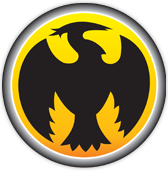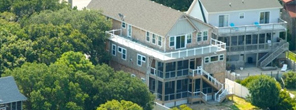1. Inspect your property – Take a walk around the inside and outside of your property to see if anything has been damaged. Create a checklist based of what you find and decide if it’s something that should be fixed now or when you open your home next spring. Items to inspect include your roof, chimney, eaves troughs, siding, foundation, trees that are leaning over your property, and out buildings.
2. Turn off the water – Turn off the water at the main supply point to prevent freezing pipes. Even if you keep your home heated during the winter, this is important in case your furnace fails or the power goes out.
3. Open your faucets and drain all water lines, including your appliances – Even if you turn off the water at the main supply into the home, it’s also important to drain the excess water from the water lines that run to your appliances, sinks, and toilets.
4. Leave the heat on at 55 degrees – Leaving the heat on will help moderate humidity and prevent wood damage or pipe freezing.
5. Water flow monitoring systems – If you choose to leave your water on during the winter, consider purchasing a water flow monitoring system. A water flow monitoring system is attached to your water main and protects your entire house. The system works by measuring water flow into your house. If it detects continuous water flow beyond the normal stopping and starting of your every day appliances, it stops the flow of water into your house automatically.
6. Empty and clean your appliances
• Refrigerator/freezer – Remove all food and wipe them down with a disinfectant that kills bacteria. After you’ve cleaned it, consider leaving your refrigerator/freezer doors slightly ajar to prevent mold and mildew growth. This will also prevent smells from getting into the plastic. Consider putting a box of baking soda inside.
• Oven – Like your refrigerator, wipe it down with a disinfectant that kills bacteria and unplug it or turn off the gas.
• Washing machine/dryer – If you’re lucky enough to have these appliances at your summer home, disconnect the hoses and unplug them. If you want to disinfect your washing machine, consider running a normal cycle with vinegar or whatever cleanser your manufacturer recommends.
• Water heater – Drain your water heater and turn off the disconnect or breaker, or switch it to vacation mode.
7. Store outdoor furniture and other expensive items in a locked garage or shed – If there isn’t storage space available on your property, consider renting a storage unit, or moving items inside.
8. Unplug your appliances and electronics – This tip will protect your appliances and electronics from power surges and lightning strikes.
9. Update your home inventory for your summer home –Make sure your contents inventory is up to date. If your vacation home was damaged by fire, storm, or water leak, you will need an inventory to be reimbursed for damage. You will have to updated it for the summer rental season, so why not get a head start!
10. Inspect your fireplace – If you have a wood burning fireplace that you’ve used for a number of years without cleaning, consider having it inspected and cleaned by a reputable chimney sweep. Creosote is a residue that travels up your chimney and builds up on your flue over time. In fact, some creosote builds up every time a wood burning fireplace is lit. If that residue isn’t properly cleaned out, the chance of a fire igniting in your chimney increases.






